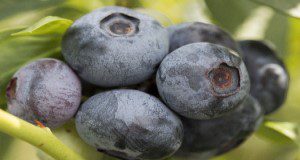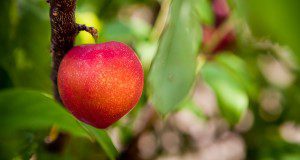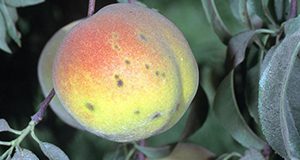There is a growing market in the United States and globally for fresh fruits and vegetables with reported health-enhancing properties. This includes blueberries, which are high in antioxidants and have been reported to improve heart health and contain anticancer properties. Fresh-market blueberry sales (conventional and organic) increased by 27% between 2013 and 2017, and that trend is expected to continue. In addition, there is an increasing level of consumer interest in organically grown produce (for environmental conservation, taste, and other perceived benefits), for which some consumers are willing to pay a premium over the price for a conventionally produced crop. This new 8-page publication of the UF/IFAS Horticultural Sciences Department discusses various aspects of organic blueberry production in Florida and is intended for use by those currently using or interested in pursuing organic production. Written by Douglas A. Phillips, Peter J. Dittmar, Philip F. Harmon, Oscar E. Liburd, Danielle D. Treadwell, and Jeffrey G. Williamson.
https://edis.ifas.ufl.edu/hs1400
Tag: Philip Harmon
Peach Brown Rot
Brown rot, caused by Monilinia spp., is one of the most economically harmful fungal diseases for peach and other stone fruit growers worldwide. Under the right conditions, the entire tree’s crop can be completely rotted. Fruit susceptibility fluctuates with the various stages of development; mature fruits are highly susceptible to disease, and fruit infection has the greatest impact on production. This new 7-page publication of the UF/IFAS Horticultural Sciences Department describes the disease cycle, symptoms, and management options available for brown rot in Florida peaches. Written by Ali Sarkhosh, Shirin Shahkoomahally, Logan Marie Richmond-Cosie, and Philip Harmon.
https://edis.ifas.ufl.edu/hs1357
Peach Rust (Transchelia spp.)
Peach rust is a fungal disease that attacks plants like peach, nectarine, almond, plum, apricot, and cherry. Infections can be particularly severe in warm weather with high rainfall, so Florida summers provide favorable conditions for peach rust development. This 6-page document describes the characteristics and management of peach rust. Written by Daniel Mancero-Castillo, Ali Sarkhosh, Courtney Ligon, Mercy Olmstead, and Philip Harmon and published by the UF/IFAS Horticultural Sciences Department, July 2018.
https://edis.ifas.ufl.edu/hs1263


